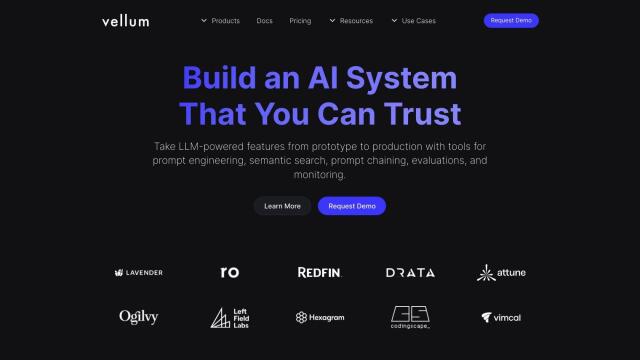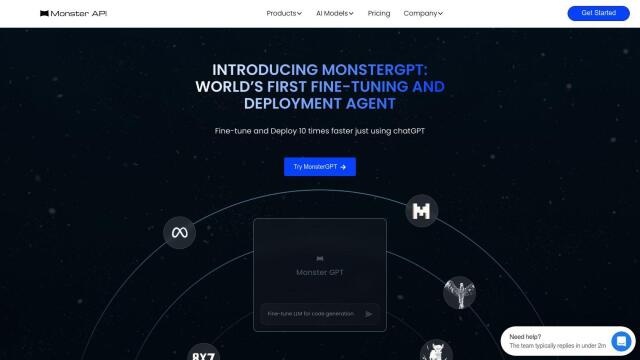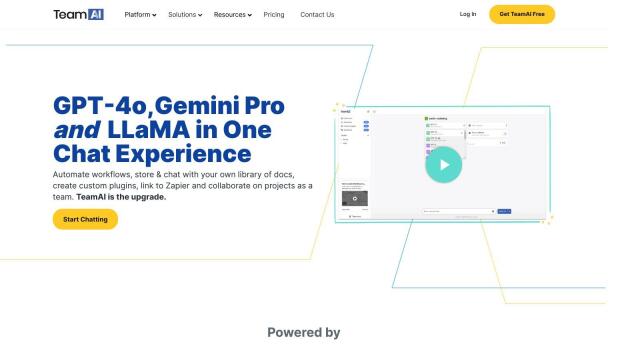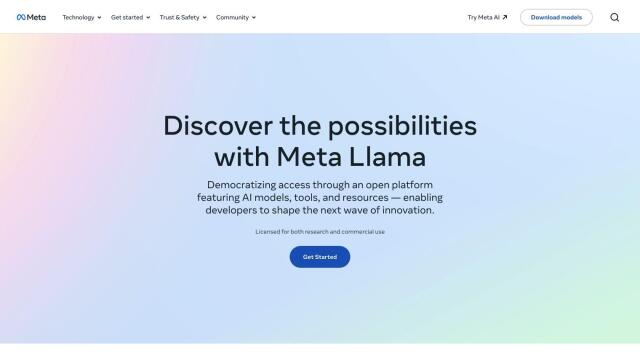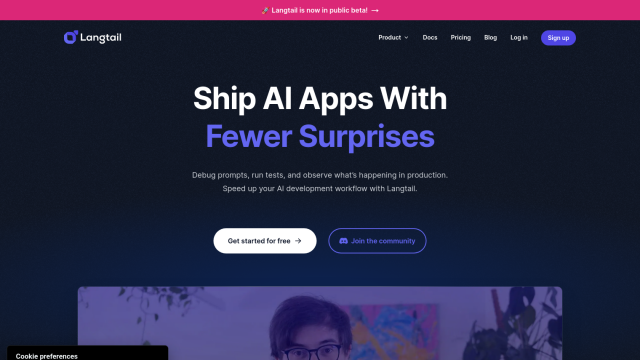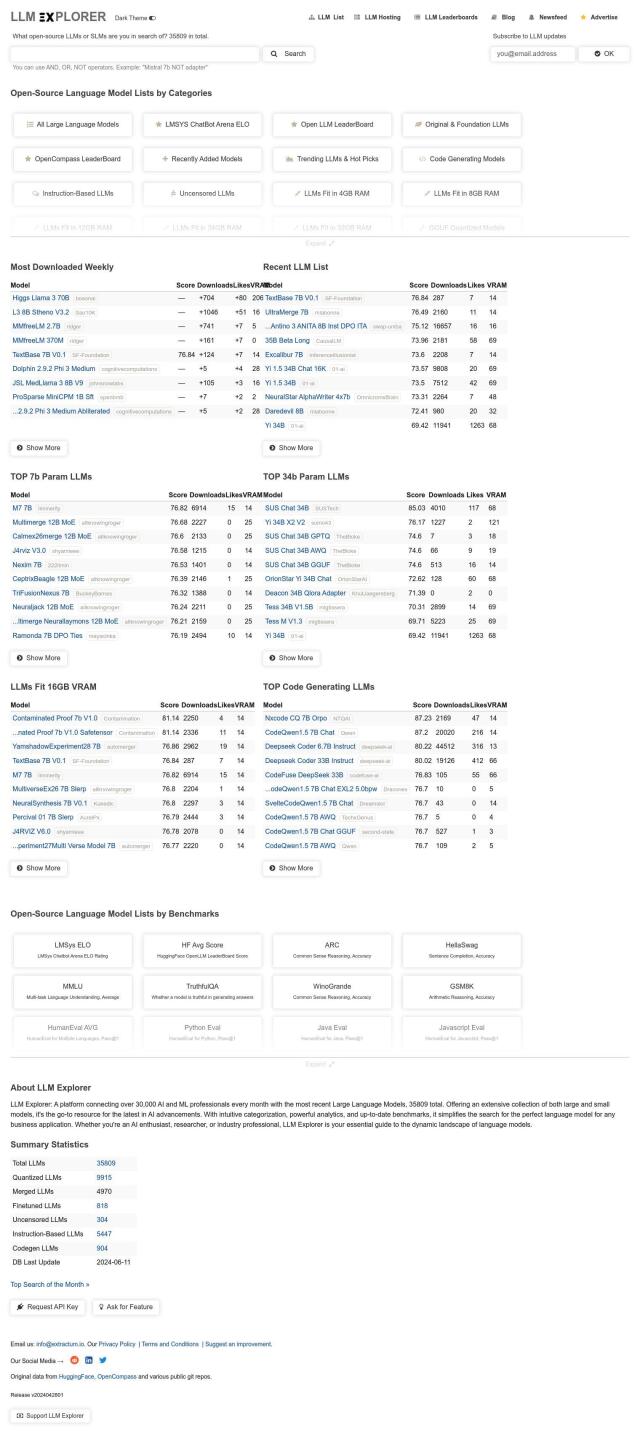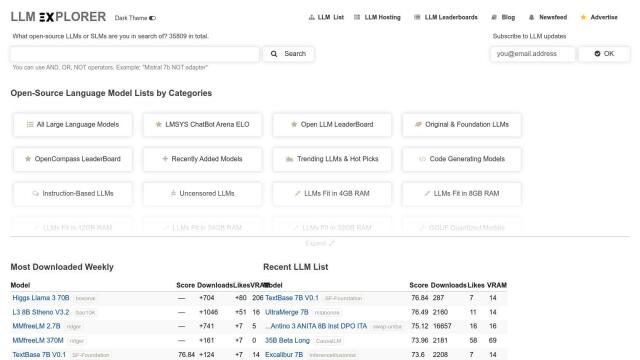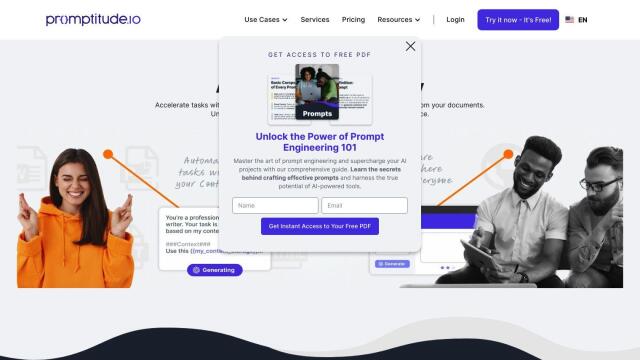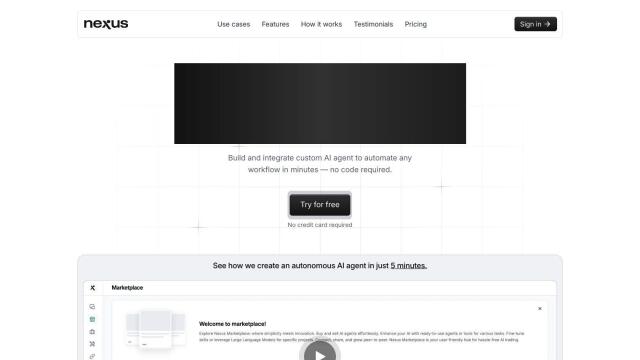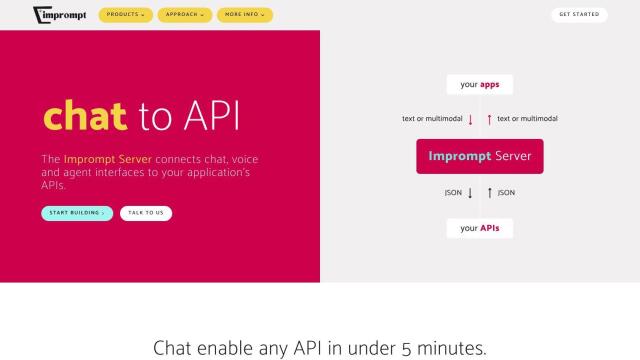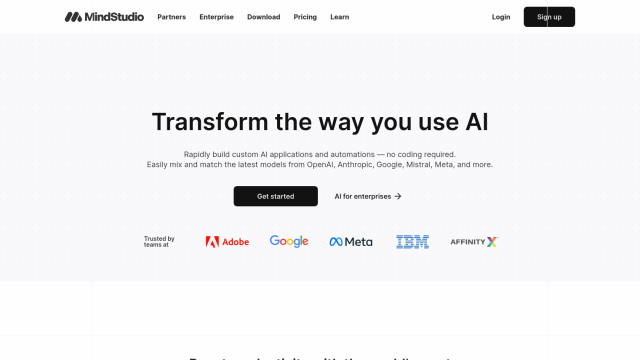Question: Can you suggest a tool that allows me to create custom language models that learn and improve over time?


Dify
If you want to build your own language models that train and improve over time, Dify is a good choice. This open-source foundation for generative AI apps lets you create your own assistants and GPTs based on Large Language Models (LLMs). Dify comes with a visual Orchestration Studio for designing AI apps, tools for designing prompts, tuning models and protecting data pipelines. It also lets you quickly deploy chatbots and AI assistants and offers on-premise options for reliability and data security.


Humanloop
Humanloop is another powerful foundation for building and optimizing LLM apps. It's designed to help you get over issues like suboptimal workflows and manual evaluation by providing a sandbox environment for developers and product managers. The service includes tools for managing prompts, evaluating models and connecting to private data sources, making it a good choice for teams that want to make AI more reliable and efficient.

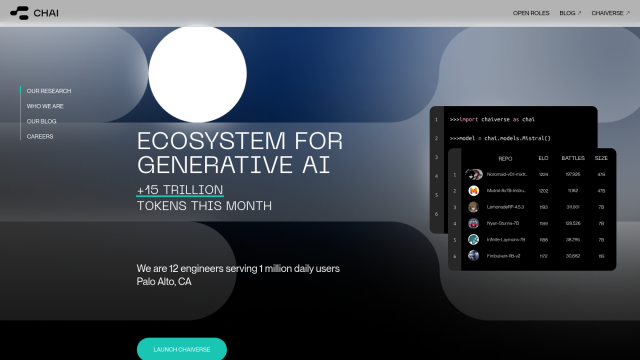
Chai AI
Chai AI is another interesting foundation for building conversational generative AI, and it's got a somewhat different approach. It's trying to help us reach Artificial General Intelligence (AGI) through a crowdsourced approach to building language models. It's got a leaderboard to rank the best models, and it's used by more than 500,000 chat AI creators and delivered more than 100 billion messages. Chai AI is focused on model safety and innovation, so if you like the idea of a community approach to development, it's worth a look.

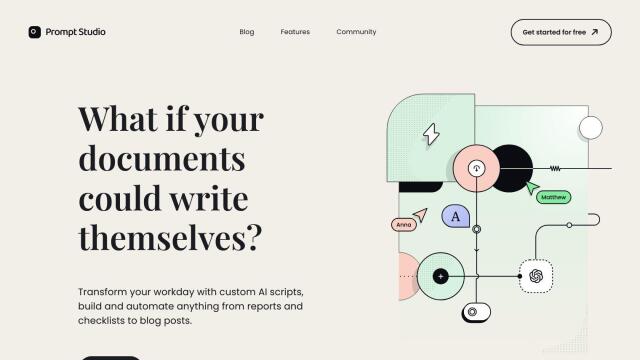
Prompt Studio
If you want a collaborative environment for building LLMs, check out Prompt Studio. It lets teams create, test and share LLM-powered features with a collaborative text editor, prompt improvement suggestions and a managed AI backend for deployment. Prompt Studio is designed for a variety of use cases, including automating legal document checks and integrating AI into existing workflows, so it's a good choice for both technical and nontechnical people.

